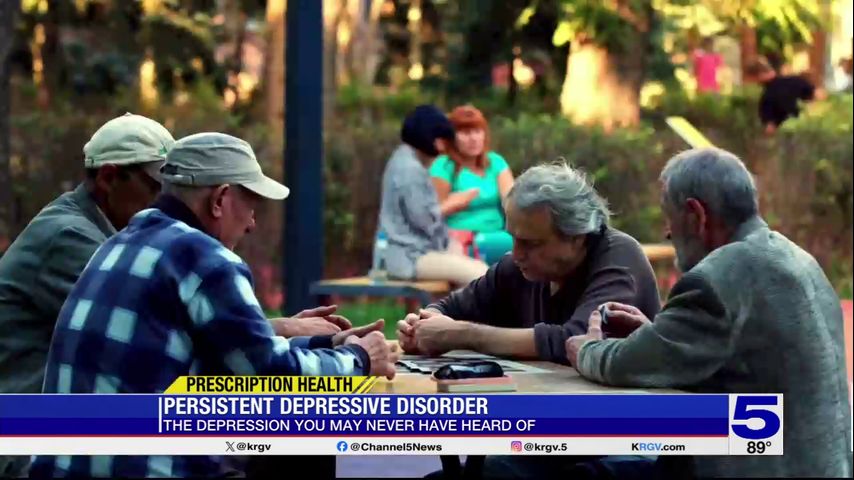Prescription Health: Signs of persistent depressive disorder
Persistent Depressive Disorder, or PDD, is not as severe as depression, but adults can struggle with the symptoms of it for years.
According to the Cleveland Clinic, 3% of Americans experience it at some point in their lives.
"People don't realize sometimes that they may have it because it's so subjective,” neuroscientist Jyoti Mishra Ramanathan said.
Symptoms of PDD include sad mood, fatigue, lack of concentration, low self-esteem, trouble sleeping, and lack of appetite or overeating.
Scientists say the first step in treatment is often a prescription for anti-depressant medications.
Health experts say making some lifestyle changes can also help. This includes eating a well-balanced diet, exercising several times a week, and limiting alcohol use.
There are also activities that can help people cope with the effects of PDD. Experts suggest going to a movie or a ballgame, spending time with friends, enjoying the outdoors, or taking a yoga class.
The Cleveland Clinic says PDD is more common in women, and it can affect people at any age — including children and teens.
Watch the video above for the full story.





